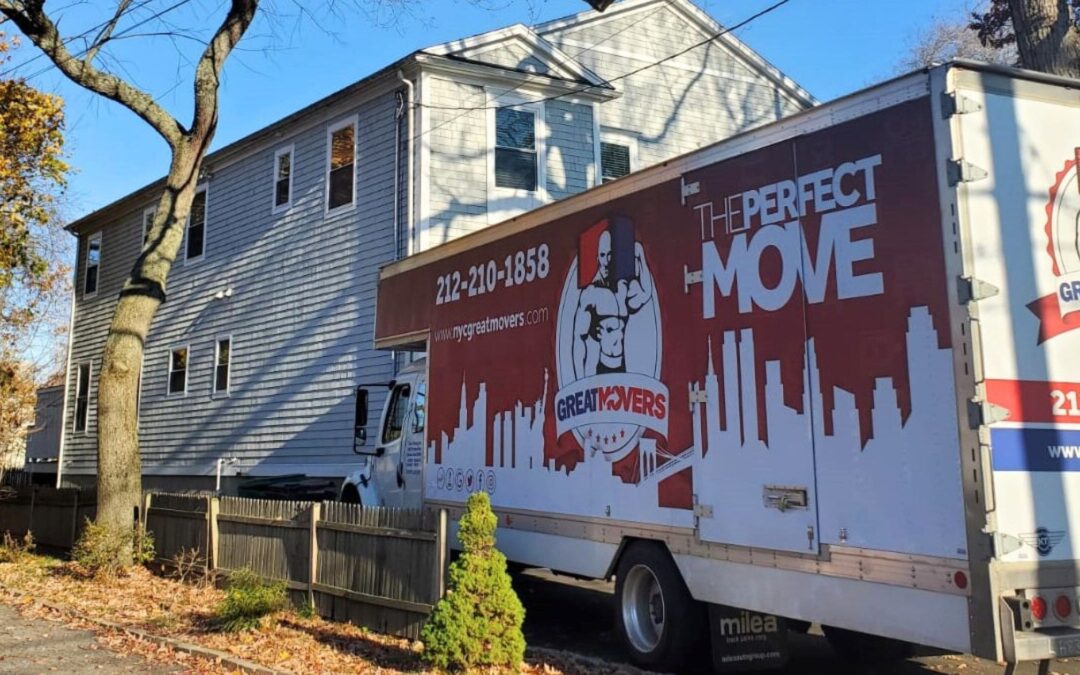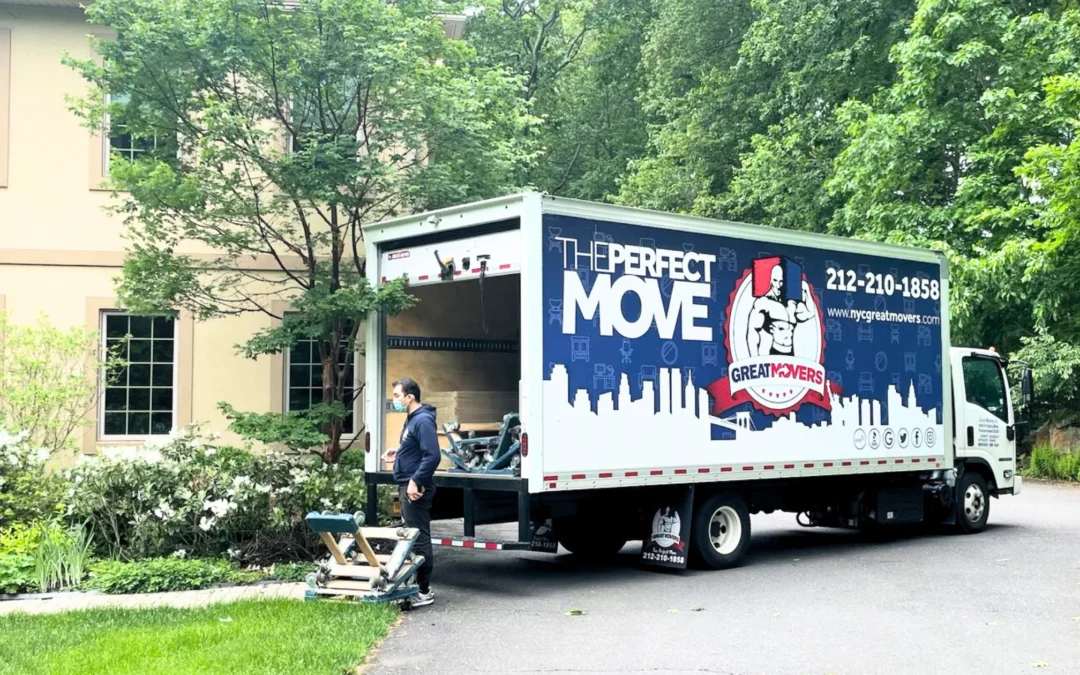Are you planning to move in the foreseeable future? If so, you’ll have to start budgeting now. Not many people are lucky enough to move for free. In general, moving expenses can add up fast, especially if you leave it until the last minute and have to scramble to get supplies and hire quality movers. Of course, it doesn’t have to be like that. While you’ll have to spend some money on moving costs, you can reduce the cost of moving in NYC by planning ahead.
Donate and/or Sell Stuff You Don’t Need
Marie Kondo made a huge splash in the United States with her book “The Life-Changing Magic of Tidying Up.” In it, she explains how people can keep a clear and clutter-free space and donate their stuff. One of the main components of her method is to get rid of items that no longer spark joy. Moving is a perfect opportunity to start removing items from your life that you no longer use. A good rule of thumb is the six-month rule. If you haven’t used or worn something in six months, you’re probably never going to use it. Of course, there are exceptions to the rule:
-
- Seasonal items – You’re not using annual holiday decorations every six months, so you can change the rule to a couple of years. Even still, you should narrow down your decorations to a select few that hold sentimental value to you, as you can always re-buy your typical wreaths, garlands, and ornaments again.
- Special occasion clothes – If you have a special outfit for certain occasions like weddings, funerals, etc., you probably won’t wear it every six months. You can keep it longer. Just make sure that the clothes still fit.
- Mementos – you probably won’t ‘use’ souvenirs and mementos, so instead, really think about your emotional attachment to these items. Do they hold a special place in your heart? Do you remember why you had the item in the first place? If you have special memories attached to it, hold on to it. Otherwise, get rid of it as it is just taking up precious space.
What to Keep, Sell, or Donate
| Item Type | Keep, Sell, or Donate? | Average Resale Value | Donation Tax Deduction (Approx.) |
|---|---|---|---|
| Seasonal Decorations | Keep a few sentimental items, donate extras | $10–$30 (per set) | $5–$20 |
| Special Occasion Clothes | Keep only if it still fits and has been worn recently | $20–$75 (per item) | $10–$30 |
| Mementos & Souvenirs | Keep only emotionally valuable ones | Varies widely ($5–$100+) | $0 (rarely deductible) |
| Books, Toys, & Small Items | Sell at a garage sale or donate | $1–$10 (per item) | $5–$15 |
| Electronics (Working Condition) | Sell on eBay or donate for a tax credit | $30–$200+ | $20–$100 |
| Clothes (Everyday Wear) | Donate if not worn in 6 months | $3–$15 (per item) | $5–$20 |
| Average Savings Potential | — | $150–$400 (resale) | $50–$150 (tax deduction) |
Once you’ve separated out the items that you don’t plan on keeping, your first step should be to try and sell as much as you can. Hosting a garage sale is a great way to quickly get rid of small items like clothes, books, toys, and other assorted knick-knacks. If you have items that you think are worth money, list them on eBay. It might take a bit longer to sell, but you’ll likely get a higher price for it than if you just sold it at a garage sale. From there, take what you can’t sell and donate it to thrift stores. These are ideal for quick and effortless donations. Just make sure that the items you donate are in good condition. That means no holes or stains on clothes, and electronic items are in working order. Once your items have been accepted, ask for a receipt from the store, as you can then use the receipt to get a tax deduction.
Research DIY vs. Professional Movers
If you’re moving on a budget, the DIY route might seem like the cheaper option when compared to hiring safe and reliable movers. However, that’s not always the case. While renting a truck at first glance might seem cheaper than the most affordable NYC movers, you also need to factor in your own labor and time. Also, what happens if you hurt yourself during the move or end up damaging your old or new building? You’ll end up paying a pretty penny out-of-pocket to deal with these issues. Some of the best movers in NYC offer reasonable rates and can get your move done quickly without any issues. To find the best option for you, you will need to do some research. In general, you’ll want to collect at least three different quotes from different companies. There is some leeway to negotiate with movers if you’re booking off-season or even on a weekday. When narrowing down your choices, make sure to do a background check before you book by looking at Yelp reviews and checking the US Department of Transportation’s Safety and Fitness Electronic Record System. You can also ask for references from each company to get an unfiltered review of their service from actual customers. The last thing you want is to hire movers who have a bad reputation. You’ll end up wasting even more money as you’ll either have to replace damaged items or hire a different moving company last minute.
Cost Comparison: DIY vs. Professional Movers
| Expense Type | DIY Move (Estimated) | Professional Movers (Estimated) |
|---|---|---|
| Truck Rental (per day) | $120 | Included |
| Gasoline & Tolls | $60 | Included |
| Packing Supplies | $100 | $50 (bulk discount) |
| Labor (friends or hired help) | $150 | Included |
| Total Estimated Cost | $430 | $400–$600 |
Once you’ve chosen your professional NYC moving company, you should make it as easy as possible for the upcoming moving day. Make sure to disassemble your furniture to avoid any extra charges and move all of your boxes into the room closest to the front door so they don’t have to walk through too many areas of your old house. As well, make sure to properly label each box and direct them accordingly when they arrive at your new house to avoid any issues. If the DIY route is still more affordable, try to avoid moving during rush hour as much as possible. Regardless of whether you’re renting or using your own truck, a heavy load will get you poor mileage, and getting stuck in traffic only compounds the issue. Driving during off-peak hours will save you time and money.
Avoid Paying for Boxes
There’s zero reason you should be paying for boxes for your move. Yes, you will need them in order to pack your belongings and keep everything organized, but there are many ways to get affordable and/or free boxes. Some great options include:
- Office – chances are, there are plenty of leftover boxes from deliveries at your office. Ask the mailroom or office services to set some larger ones aside for you to take home. Printer-paper boxes are also a great option as they are large and strong enough for most items.
- Friends – reach out to some friends who have recently moved or post on social media to see if there’s anyone nearby willing to part with their boxes.
- Online forums – you can check Freecycle or Craigslist’s Free section to see if anyone is giving away any boxes. If you don’t find anything, take a drive around your neighborhood during recycling day to see if anyone is disposing of large boxes.
- Local stores – many stores will throw out boxes at the end of the night. The best place to stop by first is the liquor store, as the boxes are strong enough to hold glass bottles. Other stores like Marshalls or H&M will also have large boxes thrown out, so drive by once or twice a week to see if any are left on the sidewalk.
| Source | What You Can Get | Tips |
|---|---|---|
| Office | Printer paper and delivery boxes | Ask the mailroom to save sturdy boxes for you |
| Friends | Used moving boxes | Ask recently moved friends or post on social media |
| Online Forums | Free boxes from Freecycle or Craigslist | Search “Free” listings or drive around on recycling day |
| Local Stores | Liquor and retail boxes | Check after closing; liquor store boxes are especially sturdy |
| Box Rental Services | Reusable plastic bins | Delivered and picked up after your move |
| Household Items | Towels, socks, and blankets | Use as free packing materials for dishes and glassware |
Heck, if you don’t want to deal with boxes after the move, you can even rent boxes. They’ll deliver boxes to you and then pick them up once you’ve unpacked. Of course, boxes aren’t the only packing materials you will need to buy. Luckily, you don’t have to pay for all the expensive materials for everyday items. Instead, get creative. Use kitchen towels to separate plates so they don’t bang against each other during the move. Similarly, you can use your socks to wrap your glassware. For more precious items like China, you should spring for more insulating items like bubble wrap and packing peanuts.
Optimize Your Utility Shut-Down
Some utility companies won’t prorate your bill even if you move in the middle of the month. If your billing cycle doesn’t line up with your moving date, cut off the service early to avoid paying another month. Naturally, you want to focus on non-essential utilities such as the internet and cable. You probably don’t want to try this with electricity. Speaking of utilities, you’ll want to research the different alternatives available at your new place. You might be able to cash in on an introductory rate for your cable/internet company if you switch to a new provider. For electricity, you might also be able to find more options, especially if you’re changing cities.
Conclusion
Moving on a budget isn’t impossible, but it does take a little bit of time and effort to get your costs down. As with most things, it requires planning and also having a clear idea of your budget. How much can you comfortably spend? Hiring a safe moving company might seem expensive at first, but when you factor in time, labor, gasoline costs, rental costs, etc, will the DIY route end up being the same or more expensive? What about the labor it entails to actually search for free boxes? Is it worth it for you to spend that time or is it better spent doing something else? Only you can answer all of these questions. However, it’s not impossible to move on a relatively low budget. Just know that it will probably require more time than you might have anticipated. With that in mind, make sure to start planning for your move well in advance so you don’t have to worry about unexpected costs after the move.
FAQ
What should I do with my boxes after I move?
There are plenty of ways you can reuse your old boxes. If all else fails, you can see if anyone in your area might need them for their move.
How do I dispose of bulk items?
Each city has different rules, but in NYC, non-recyclable bulk items measuring 4 feet by 3 feet can be put out according to the normal trash schedule. Larger items will require you to make an appointment with the Department of Sanitation.
Why Should I Hire Movers?
Quality apartment movers in NYC are professionals and can make your move stress-free. While it might not be in the budget for everyone, it’s a great option for those who need a lot of heavy furniture and items moved. If you don’t fall into that category, the DIY route might be a good option.









